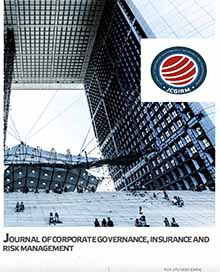Modelling fraud prevention process
Modelling fraud prevention process
Author(s): Darko Tomaš, Igor TodorovićSubject(s): Economy, Business Economy / Management, Micro-Economics, Criminology, Public Finances, Business Ethics
Published by: Acadlore Publishing Services Limited
Keywords: Fraud; internal audit; risk assessment; business ethics; health care;
Summary/Abstract: Fraud is global social problem and they occur in all activities. The term fraud implies corruption, misappropriation of assets and fraudulent financial reporting. People that commit fraud are inside and outside of organisation. Factors that affect fraud doing are: motive, opportunity, ability and justification. In our region, it can be said that fraud is not individual problem but it’s a case of systematic fraud, especially in public sector by creating monopoly of private over public sector. Costs related to fraud will be difficult to objectively assess. Everyone is sensitive to health care related frauds, from patients and doctors to whole society. For battle against fraud requires political will, effective legislative framework and anti-fraud strategy. Every strategy has to begin with prevention process. Paper presents model of fraud prevention process. Model is based on increasing awareness of all participants about the importance of battle against the fraud, accepting anti-fraud policies and zero fraud toleration, establishing channels for reporting fraud, as well as defining responsibilities of internal audit in evaluation of internal controls, fraud risk assessment, corporate governance and providing recommendations for process improvement.
Journal: The Journal of Corporate Governance, Insurance, and Risk Management (JCGIRM)
- Issue Year: 3/2016
- Issue No: 2
- Page Range: 76-87
- Page Count: 12
- Language: English

